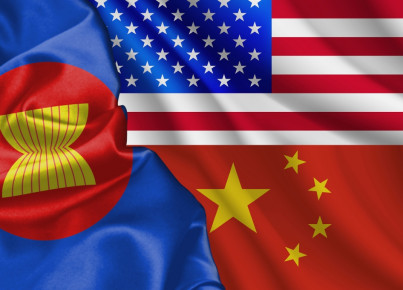Diversi giganti del fintech indiano sono ora focalizzati sui mercati e-commerce ASEAN. Obiettivo: modellare insieme la futura infrastruttura finanziaria della regione.
Digital payments are a driving growth factor for the online economy. Alipay has allowed China to establish millions of economic relationships based on the essential factor of trust. The latter has been possible thanks to the innovative approach of “pay now, get a refund if not satisfied”. Several studies indeed have shown how the development of these platforms has been a key factor enabling the skyrocketing Chinese economic boom in the last 20 years.
ASEAN, thus, is now home to a multitude of international B2C e-commerce leaders such as Sea, Tokopedia and Grab, apart from a myriad of ever-growing scale ups now also offering B2B services.
Sea company’s stocks have become extremely appetible on international markets, while Gran continues to evolve into a super-app (valued at an astonishing $40 billion), now virtually touching all dimensions of its users’ daily lives.
In this sense, South east Asia is soon believed to complete its exploit in the digital economy, thanks to its dimension, population (651 million up to now), and intrinsic scalability in the productive system which creates the basis for knowledge spillovers and knowledge transfer to happen. Correctly evolving into a knowledge-based economy, in this sense, could mean sure success in the long term.
However, every super app must ensure itself and its users a solid financial and payment infrastructure, enabling not only safety but also trust as already mentioned.
India represents a clear virtuous example of this: the country is home to 51 unicorns, of which 30% happen to operate in the financial sector of the economy. In other words, Indian industries are massively benefiting from the rising of a best-in-class fintech cluster: here, digital payments hava been increasing from 3 to 32 trillion rupees, in 4 years.
With this entrepreneurial spirit, some Indian fintech scaleups namely Pine Labs, Zeta and Razor Pay, have recently acquired some medium-sized B2B and B2C ASEAN companies. As in the words of Amrish Rau, Pine Labs CEO, ‘Some ASEAN markets are now believed to be where India was almost three years ago: there is a great opportunity in solving their fragmentation and ultimately conferring them a solid financial echo-system’.
The firm has now acquired Fave, a Malaysian scale up specialized in promo codes and discounts available for e-commerce, while RazorPay is paving the way for the imminent acquisition of some noteworthy food delivery players. Harshil Matur, its CEO, has repeatedly declared its intent to invest in Vietnam, Philippines, Malaysia, and Indonesia. Indeed, these markets are ‘alike the Indian one, but with remarkable margins of improvement’.
Bottom line: South East Asia confirms its market attractiveness for foreign direct investments, thus signaling solidity and prosperity of its economic system. However, we must notice that most of these capitals come from best-in-class international players, being fintech, tech or just food delivery in e-commerce: this, ultimately, can be further claimed to be an indisputable sing of its rising power in the global geo-economic equilibrium.






